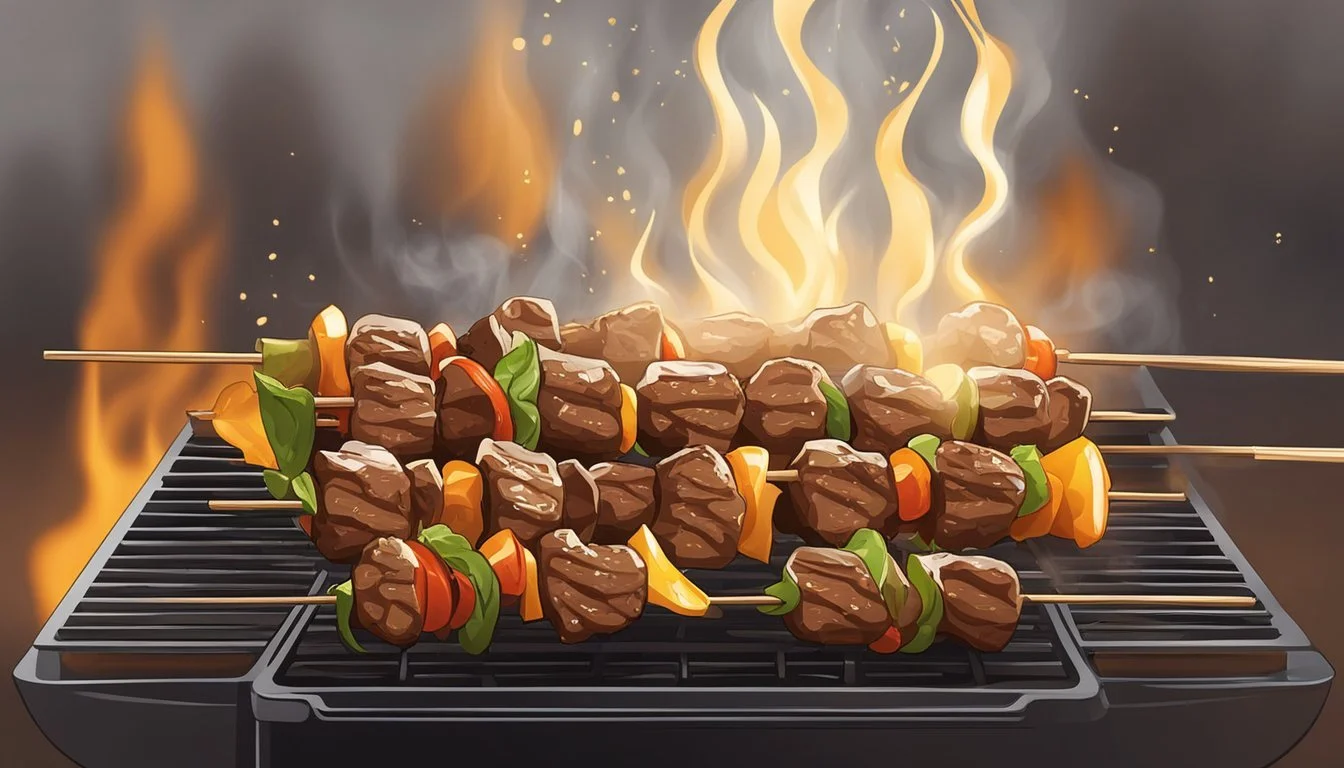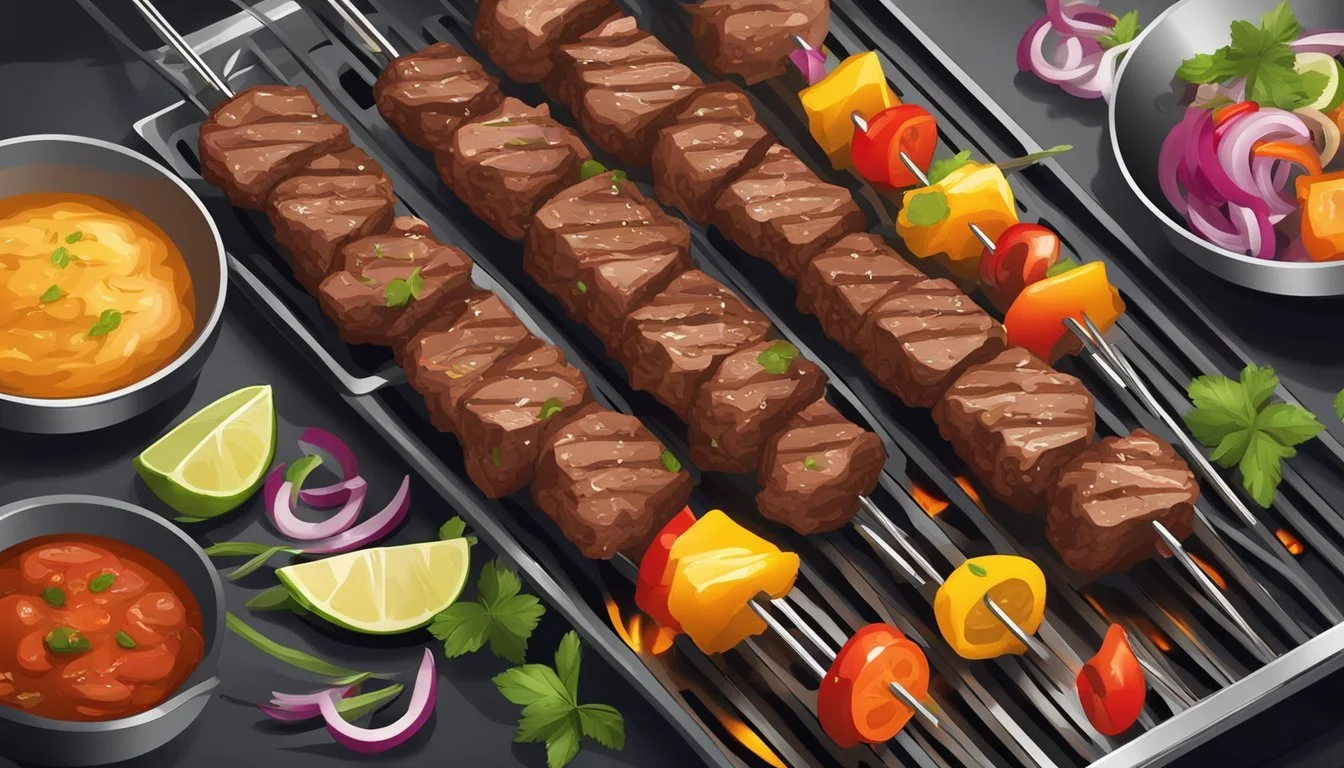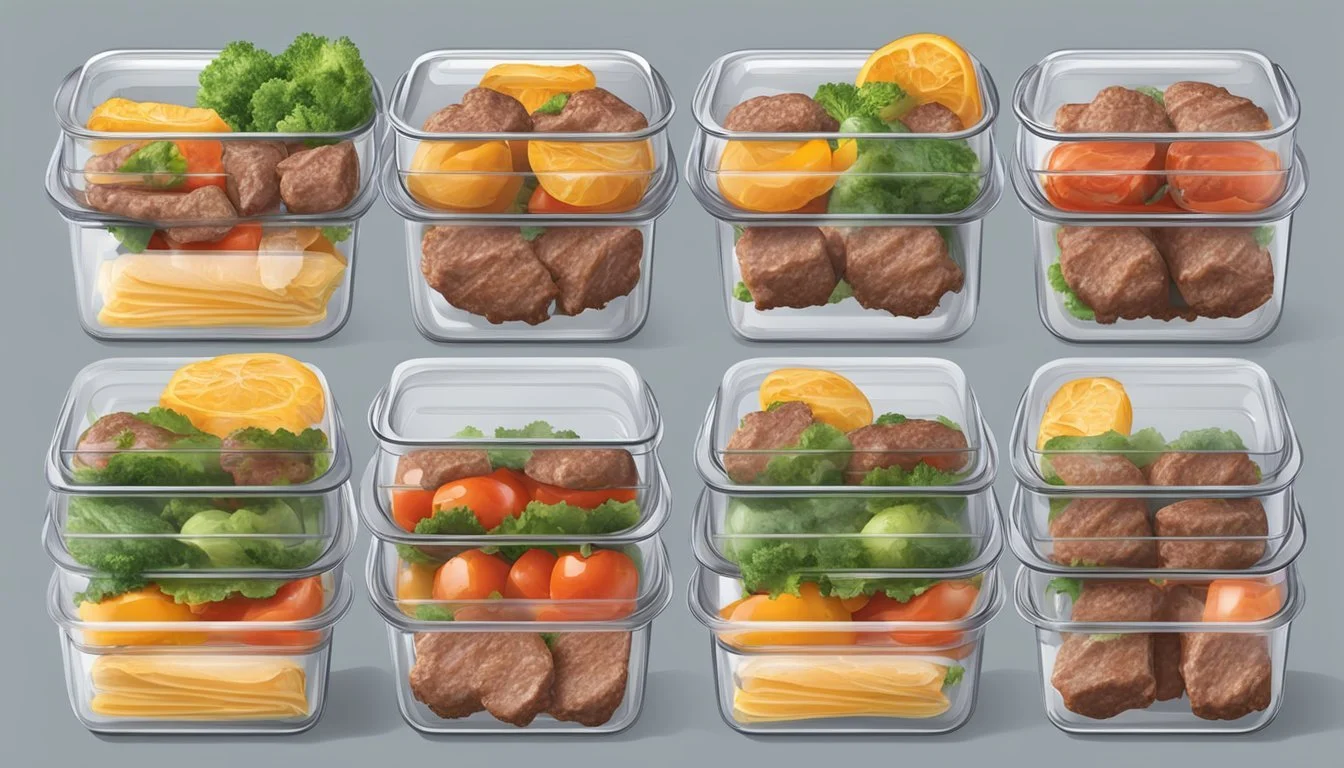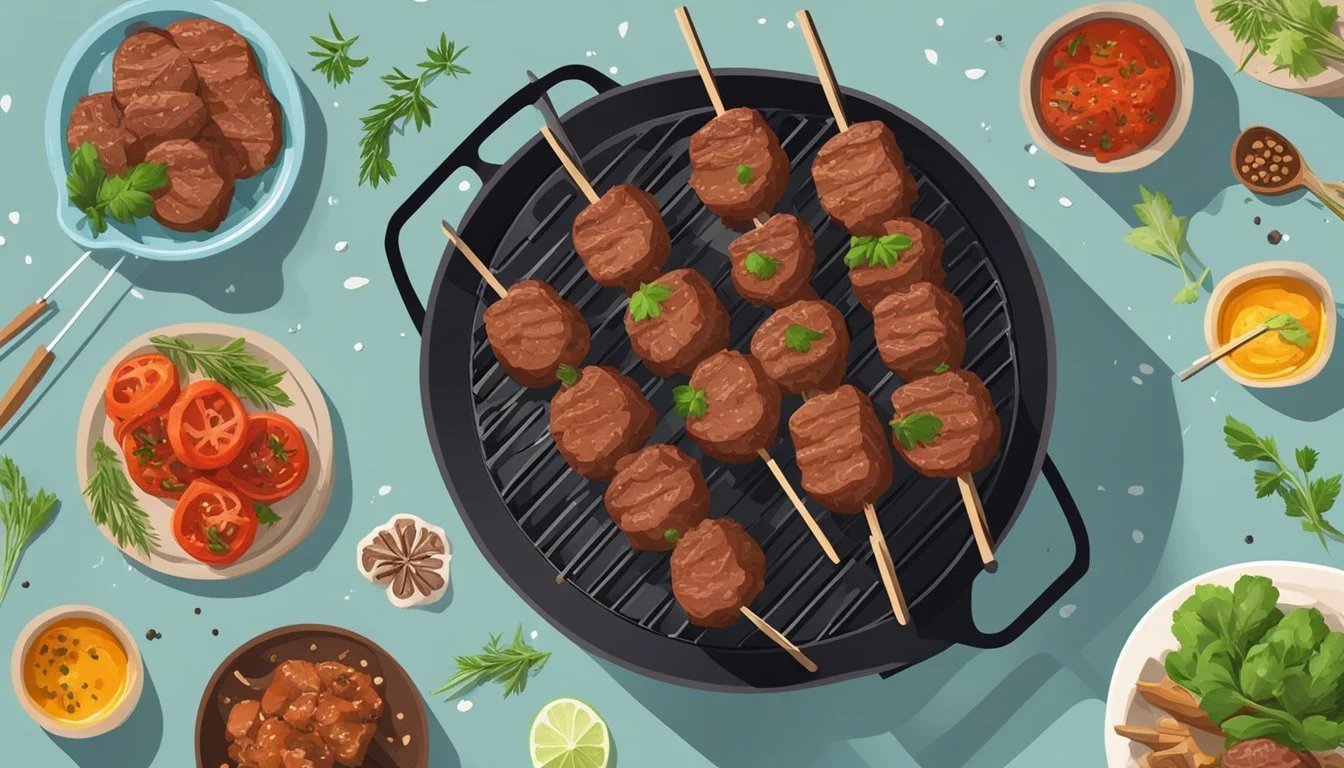How Long Do Beef Kebabs Last?
Storage Tips and Shelf Life
When it comes to enjoying beef kebabs, one key question that often arises is how long they last. Beef kebabs can typically last up to three to four days in the refrigerator when stored properly. This timeframe ensures that the meat remains safe to eat and retains its flavor.
Proper storage is crucial for maintaining the quality of beef kebabs. Storing them in an airtight container or wrapping them securely in plastic wrap or aluminum foil can help extend their freshness. Ensuring the refrigerator is set to the correct temperature, typically below 40°F (4°C), is another critical factor.
Moreover, if you have more beef kebabs than you can consume within that window, freezing them might be the best option. Beef kebabs can be frozen for up to two to three months without significant loss of quality. Ensure they are tightly wrapped or stored in a freezer-safe container to prevent freezer burn and maintain their delicious taste.
Understanding Beef Kebabs
Beef kebabs are a popular dish that combines marinated beef with a variety of vegetables. Understanding the key ingredients and nutritional value of beef kebabs can help in preparing a delicious and healthy meal.
Ingredients for Beef Kebabs
The main ingredient for beef kebabs is high-quality beef, often cut into bite-sized pieces. Common cuts include sirloin, tenderloin, and ribeye, known for their tenderness and flavor.
Vegetables that pair well with beef kebabs include:
Bell peppers
Onions
Mushrooms
Cherry tomatoes
Marinades play a crucial role in adding flavor and tenderizing the meat. Ingredients typically include:
Olive oil
Soy sauce
Garlic
Lemon juice
Various spices like paprika and cumin
Wooden or metal skewers are used to hold the meat and vegetables together for grilling or baking.
Nutritional Value of Beef Kebabs
Beef kebabs offer a nutritious and balanced meal. A typical serving provides a good source of:
Protein: Essential for muscle repair and growth. Beef is a rich protein source.
Vitamins and Minerals: Including B vitamins, iron, and zinc, which are vital for energy production and immune function.
Fiber and Antioxidants: From the vegetables, promoting digestive health and reducing inflammation.
Depending on the preparation, the nutritional content can vary:
Calories: About 200-300 per skewer, influenced by the type of beef and marinade ingredients.
Fat: Lean beef cuts reduce fat content.
Carbohydrates: Minimal, mainly from the marinade and vegetables.
Beef kebabs can be part of a healthy diet when prepared with the right balance of ingredients and cooked in a way that preserves their nutritional value.
Preparation and Cooking Methods
For optimal flavor and tenderness, marinating beef kebabs is essential, and grilling them correctly ensures they are cooked to perfection.
Marinating Beef Kebabs
Marinating beef kebabs adds flavor and helps tenderize the meat. Use a glass or plastic bowl (never aluminum) to avoid any reaction with acidic ingredients. Combine olive oil, minced garlic, black pepper, and other desired spices or herbs to create the marinade.
Cut the beef into 1-inch cubes and place them in the marinade bowl, making sure the meat is fully coated. Refrigerate for 4 to 6 hours, stirring occasionally to ensure even marination. For best results, the marinade should include an acid (like lemon juice or vinegar) to help break down the muscle fibers in the meat. Common additions include soy sauce, onions, and bell peppers for added flavor.
Grilling Instructions
Preheat the grill to medium-high heat for even cooking. If using wooden skewers, soak them in water for at least 30 minutes to prevent them from burning. Thread the marinated beef cubes onto the skewers, alternating with chunks of onion and pepper for variety.
Grease the grill grates with oil to prevent sticking. Place the kebabs on the grill, ensuring they are directly above the heat source. Grill the kebabs for 12-15 minutes, turning occasionally to char on all sides. For well-done beef, reduce the heat slightly and cook for a few extra minutes. Adjust grilling times depending on skewer size and preferred doneness.
Ensure that internal temperature reaches 145°F (63°C) for medium-rare. Rest the kebabs for a few minutes before serving to retain juices.
Safe Storage Practices
Beef kebabs need careful storage to maintain their freshness and safety. Proper refrigeration and freezing techniques are vital to prevent spoilage and ensure they last as long as possible.
Refrigerator Storage
When storing beef kebabs in the refrigerator, it's crucial to set the temperature at or below 40°F (4°C). Freshly prepared kebabs, especially those with raw meat and vegetables, should be placed in the fridge immediately. They should be cooked within 1 to 2 days to avoid bacterial growth.
Use airtight containers or plastic wrap to cover the kebabs, preventing cross-contamination with other foods. If the beef kebabs are already cooked, they can last in the refrigerator for up to 3-4 days. Always store kebabs on the lower shelves to avoid drips contaminating other foods.
Freezer Storage
Freezing beef kebabs can extend their shelf life significantly. They should be wrapped tightly in plastic wrap, aluminum foil, or placed in freezer bags, with excess air removed to prevent freezer burn. Stored properly, beef kebabs can last in the freezer for up to 2 to 3 months.
Label the containers or bags with dates to keep track of storage times. When ready to use, thaw the kebabs in the refrigerator instead of room temperature to avoid bacterial growth. Remember, once thawed, they should be cooked immediately and not refrozen. Consistently maintaining freezer temperatures at 0°F (-18°C) will ensure the best preservation.
Shelf Life and Spoilage
Beef kebabs, like other perishable foods, have a limited shelf life and are susceptible to spoilage if not stored correctly. Knowing how to identify spoilage and understanding factors that affect their shelf life can help ensure food safety and quality.
Signs of Spoilage
Detecting spoilage in beef kebabs involves checking for several indicators. Visual changes such as discoloration or mold indicate bacterial or fungal growth. Fresh beef is typically a bright red color, turning brown or grey as it spoils. Odor is another crucial factor; spoiled beef often emits a sour or rancid smell, markedly different from its fresh, mild scent. Texture changes can also signify spoilage. If the beef feels slimy or sticky, it may no longer be safe to eat. Taste should never be used as a method to determine spoilage due to the risk of consuming harmful bacteria.
Factors Affecting Shelf Life
Several factors influence the shelf life of beef kebabs. Temperature plays a critical role; beef should be stored at or below 40°F (4°C) to slow bacterial growth. Packaging methods, such as vacuum-sealing, can extend the shelf life by reducing exposure to air and moisture. Handling practices also impact shelf life; avoiding cross-contamination during preparation and storage is essential. Doneness affects longevity; fully cooked kebabs typically last up to 3-4 days in the refrigerator, while raw kebabs should be cooked within 1-2 days. Properly managing these factors can prevent premature spoilage and ensure the safety and quality of beef kebabs.
Enhancing Beef Kebabs Flavor
For optimal results, focus on selecting high-quality ingredients and experimenting with different marinades to enrich the taste and texture of your beef kebabs.
Choosing the Right Ingredients
Selecting fresh, high-quality beef is crucial. Opt for tender cuts like sirloin, ribeye, or tenderloin, which offer both flavor and juiciness. Vegetables like bell peppers, onions, zucchini, and mushrooms add a delightful contrast and should be fresh and vibrant. Skewers also matter; wooden skewers should be soaked in water to prevent burning, while metal skewers can offer even cooking.
Consistency in cutting is key. Uniform pieces ensure all ingredients cook evenly. Stick to 1-2 inch pieces for both meat and vegetables. Fresh herbs and spices can further elevate flavors – think rosemary, thyme, or ground black pepper.
Marinade Variations
A good marinade makes a world of difference. A basic marinade might include olive oil, garlic, lemon juice, and soy sauce. Acidic components like vinegar or citrus help tenderize the meat, while ingredients like yogurt or buttermilk can add a tenderizing dimension as well.
Adding fresh herbs and spices such as cumin, coriander, and paprika offers depth. Honey or brown sugar provide a hint of sweetness and facilitate caramelization on the grill. Ensure the meat marinates for at least 4 hours, but ideally overnight, to allow flavors to penetrate deeply. Keep the marinade ratio balanced to avoid overpowering any single flavor component.






